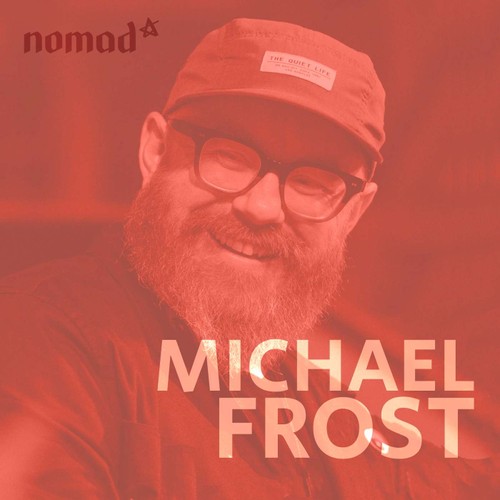
 Nomad Podcast
Nomad Podcast Michael Frost - Deconstructing the Christian Narrative of Power (N302)
24 snips
Aug 10, 2023 Chapters
Transcript
Episode notes
1 2 3 4 5 6 7 8 9 10 11 12 13 14 15 16 17 18 19 20 21 22 23 24 25 26 27 28 29 30 31 32 33 34 35 36 37 38 39 40 41 42 43 44 45
Introduction
00:00 • 2min
Tai Chi and the Cold
01:41 • 2min
The Life of Owning Cats
03:24 • 2min
The Highs and the Lows of the Finzry Park Experience
05:18 • 2min
The Importance of Listening to Taylor Swift
06:57 • 3min
The Therapeutic Reflections of Joy Brooks
09:50 • 2min
How to Conduct an Interview With Michael Frost
11:31 • 2min
The Use of Language and Power
13:21 • 2min
The Importance of Faith in My Life
15:45 • 2min
The Changes I've Experienced Since I Left Home
17:51 • 4min
The Power of Community
21:38 • 3min
The Importance of Leadership in the Church
24:36 • 4min
The Use of Language in Church Spaces
29:01 • 6min
The Language of Leadership
35:00 • 4min
The Normalization of Christianity
38:45 • 2min
The Transformation of the Christian Tradition
41:03 • 4min
The Pentecostal Evangelical Complex: A Normalized Practice
45:12 • 2min
All Have Sinned
47:02 • 4min
The Negative Impact of Spiritual Language
51:32 • 4min
How to Silence Questions
55:52 • 3min
The Power of Silence
58:33 • 4min
The Tides of Stories That Don't Add Up
01:02:30 • 5min
The Disentangling Process
01:07:37 • 5min
The Power of Owning Your Story
01:12:18 • 2min
Co-Leading a Small Church Community
01:14:28 • 4min
The Importance of Normalizing the Status Quo
01:18:45 • 3min
The Upside Down Kingdom
01:22:01 • 3min
The Importance of Listening to Tim's Interview
01:24:34 • 2min
The Impact of Serving Another Man's Vision
01:26:57 • 4min
The Prosperity Gospel
01:30:32 • 2min
The Pressure to Grow Your Church
01:32:52 • 2min
The Importance of Owning the Story
01:34:46 • 3min
The Importance of Not Overestimating Our Impact on Others
01:37:25 • 2min
The Power of Reflection
01:39:08 • 2min
The Power of Coercion
01:40:43 • 3min
The Importance of Coercion in Youth Work
01:43:43 • 2min
The Importance of Staying in a System
01:45:19 • 2min
The Power of Pushing Through
01:47:34 • 2min
The Hardness of Being a Leader
01:49:24 • 5min
The Disappointment of Being a Man of God
01:54:12 • 5min
The Dangers of Coercion and Control in Religious Spaces
01:59:01 • 3min
The Power of Words
02:01:44 • 5min
The Importance of Being Kind
02:06:32 • 3min
The Importance of Connecting With God
02:09:30 • 3min
The Importance of Being Transcendent
02:12:13 • 2min
